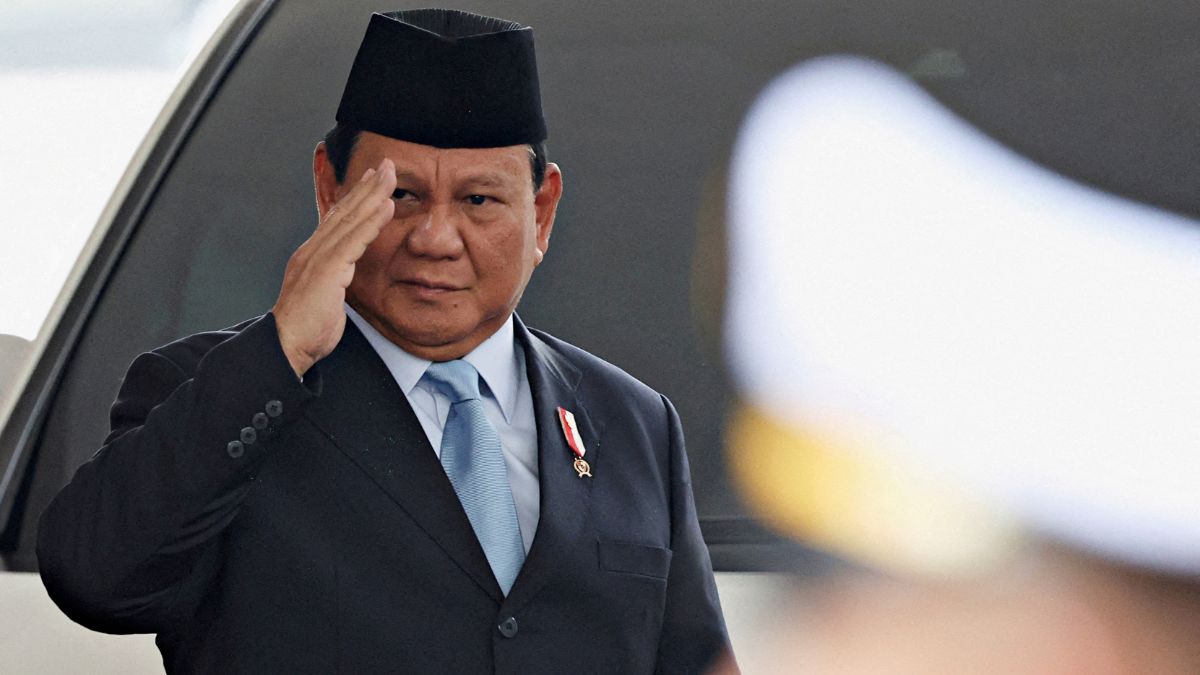Retired general Prabowo Subianto, 73, will be inaugurated on Sunday as the president of Indonesia, the world’s third-biggest democracy with the largest economy in Southeast Asia.
Although Subianto has vowed to continue his predecessor’s widely famous policies, his human rights record has left activists and analysts concerned about the future of Indonesia’s democracy. In the February election, Subianto positioned himself as the successor to the widely popular President Joko Widodo, Indonesia’s first president from outside the political and military elite.
As defence minister at the time, Subianto promised to carry forward Widodo’s modernisation agenda, which had fueled rapid economic growth and pushed Indonesia into the ranks of middle-income nations.
However, Subianto enters office with several concerns over the environmental and social costs of this development, as well as his controversial past. His alleged involvement in torture, disappearances, and other human rights violations during the final years of the Suharto regime, where he served as a lieutenant general, remains unresolved.
Let’s take a look at Prabowo’s policy pledges:
Boosting economic growth
Subianto has set a target to boost economic growth to 8% from the current 5%. He aims to achieve this by developing industries that process Indonesia’s rich natural resources and depending on the economic impact of his flagship programmes, including giving students free school meals.
According to his aide, Subianto will also be open to foreign investment, which might include offering investors management of airports and sea ports.
Presently the defence minister, Subianto also plans to increase funds by selling carbon credits overseas to fund green projects that will help create jobs, an adviser told Reuters.
Energy and food security
One of the biggest pledges in Subianto’s campaign was to make Indonesia self-sufficient in the production of staples and to reduce the country’s dependence on fuel imports. In his present role as defence minister, he supervised the “Food Estate” project, clearing swamps to make way for cassava planting.
The project is expected to expand and create three million hectares (7.4 million acres) to cultivate rice, corn and soybeans. Some of the agricultural products are also likely to be made into bioethanol.
In addition, Subianto has made preparations to raise the mandatory blending of palm oil-based biodiesel to 50% by next year, a hike from the current 35%, to reduce gasoil imports. Notably, Indonesia is the biggest producer of palm oil in the world.
Free school meals
Subianto’s flagship campaign proposal is the $28 billion “Free Nutritious Meals” programme, aimed at providing food to 83 million children and pregnant women to address stunted child growth.
While some economists have expressed concerns over the programme’s costs, fearing it may shift the government away from the prudent fiscal management upheld by his predecessor, rating agencies and investors are particularly cautious.
Despite this, Subianto and his team have defended the initiative, citing its importance for long-term human capital development. The programme is expected to be introduced in phases beginning in January 2025.
Tax policy
Subianto has set ambitious plans to increase the government’s revenue-to-GDP ratio from around 12% to 23%, pledging to achieve this through improved technology rather than tax rate hikes. During the campaign, he hinted at the possibility of establishing a tax collection agency modelled on the US Internal Revenue Service, though it was unclear if this idea would be implemented.
There has also been speculation that Subianto might lower the corporate income tax rate from 22% to 20%, although the decision would depend on its potential impact on overall revenue. It also remains uncertain whether he will go forward with a planned increase of the value-added tax (VAT) rate from 11% to 12% in January 2025, a move already set in motion by the current administration but unpopular among the public.
A new capital city?
Outgoing President Widodo has made the $32 billion project to shift Indonesia’s capital 1,200 km (745 miles) away from sinking Jakarta to Nusantara, on Borneo island, his major legacy project.
Subianto has publicly stated that he would continue building the city, despite mentioning that the project might take years to complete.
However, several members of Subianto’s coalition have privately raised some doubts regarding the capacity of the state budget to fund both the new capital as well as the nutrition programme, sources told Reuters.
Foreign policy of non-alignment
Subianto promised that his presidency would continue Jakarta’s long-held foreign policy of non-alignment and maintain good relations with global powers without having to choose any sides.
In a show of sign he would be more prominent on the global stage, he has travelled extensively after winning the election, meeting leaders from countries including Australia, China, France, Japan, Russia and neighbouring nations in Southeast Asia.
In 2023, at a meeting with security officials from several countries, Subianto, as Indonesia’s defence minister, also proposed a peace plan to end the conflict in Ukraine.
Several months later, he took a swipe at the European Union’s deforestation rules, saying that Europeans forced Indonesians to cut down forests when Jakarta was a Dutch colony, during a seminar clarifying his foreign policy stance.
With inputs from Reuters


)

)
)
)
)
)
)
)
)



